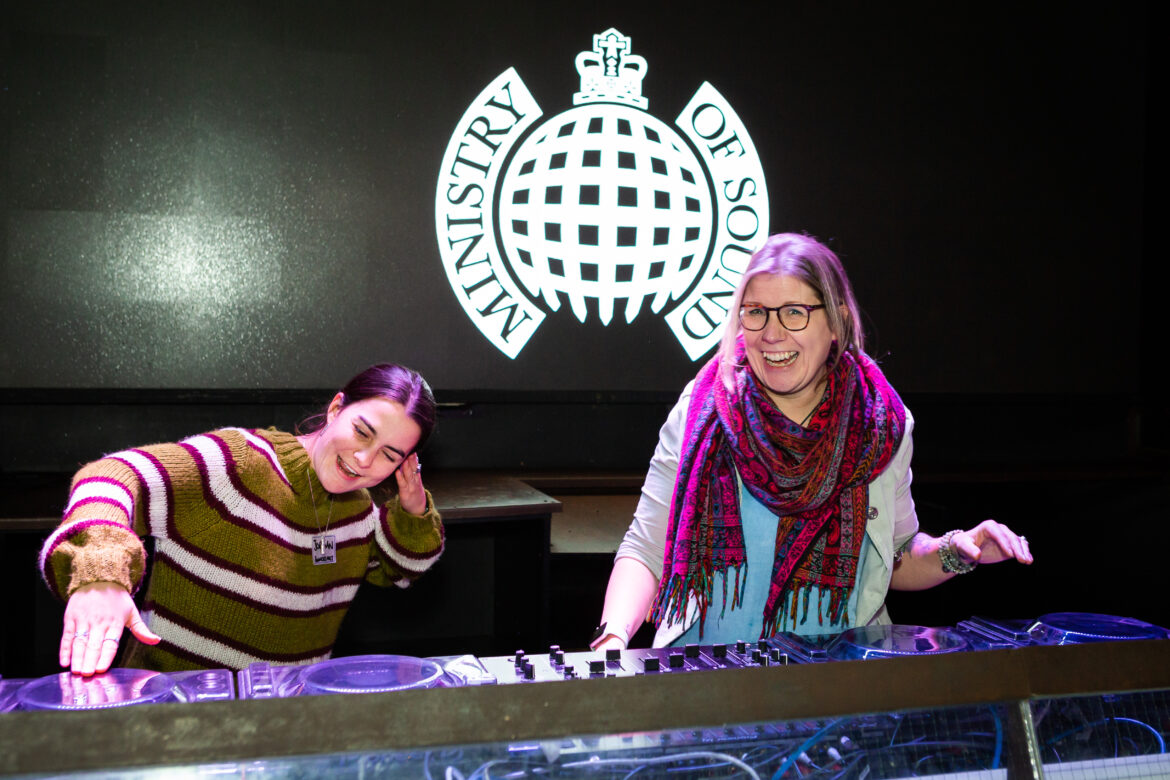📸 Were you photographed? You can download photos from the day here.
By Ian Harris
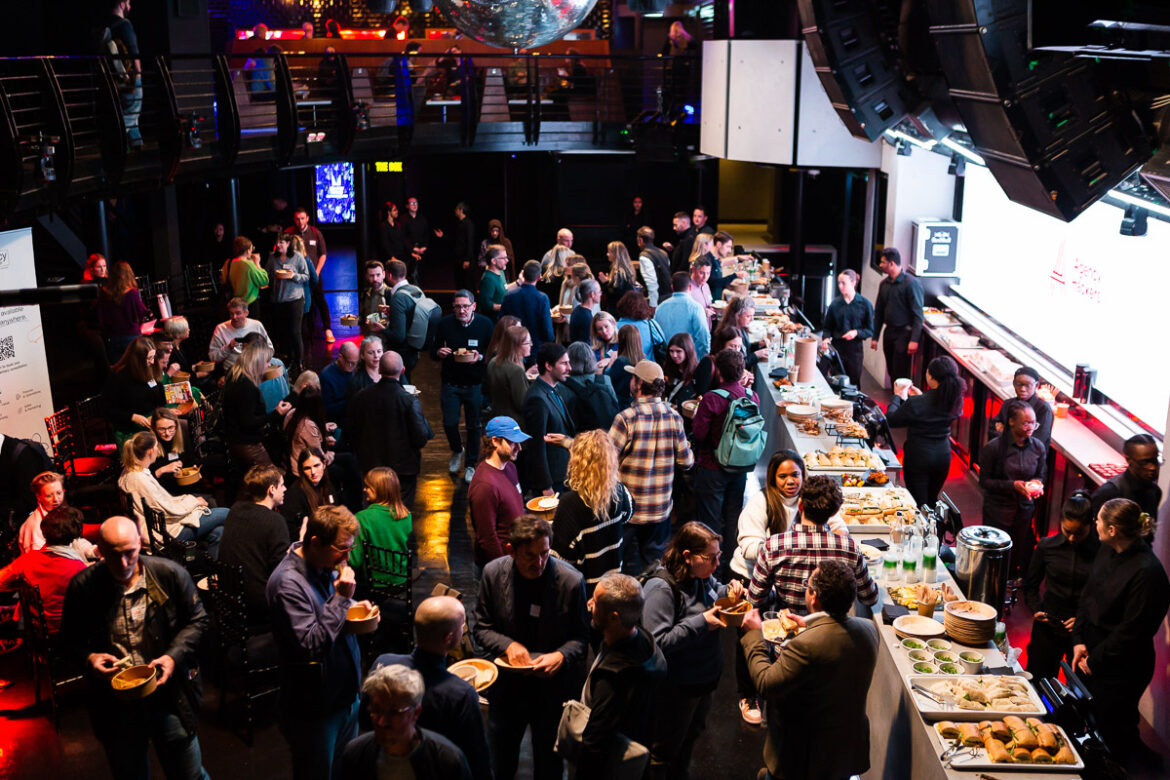
Last week we ran the first ever Good Agencies Summit at the Ministry of Sound. After our events we always ask for feedback, and we’re grateful to our community for doing exactly that.
People took the time to give us thoughtful and constructive feedback on what they liked – and they think we should improve.
We thought we’d share the highlights of this feedback with you – good and bad! We know our events aren’t perfect – but we’re stubborn enough to want them to be.
We’re sharing the feedback for these reasons:
- You can see how we’re trying to improve.
- You can see what other people thought.
- You might be running events yourself – so it’s interesting to see how other people respond to events.
⭐️ Overall feedback was 4/5
We had 39 people give us feedback out of 140-150 who came. The most common score (the “mode”) was 4 out of 5.
That’s a good score – we are happy with this.
But we asked what you didn’t like, as well as what you did – and this is where the really interesting stuff lies.
Buckle up…
1. The Venue Was ‘Marmite’
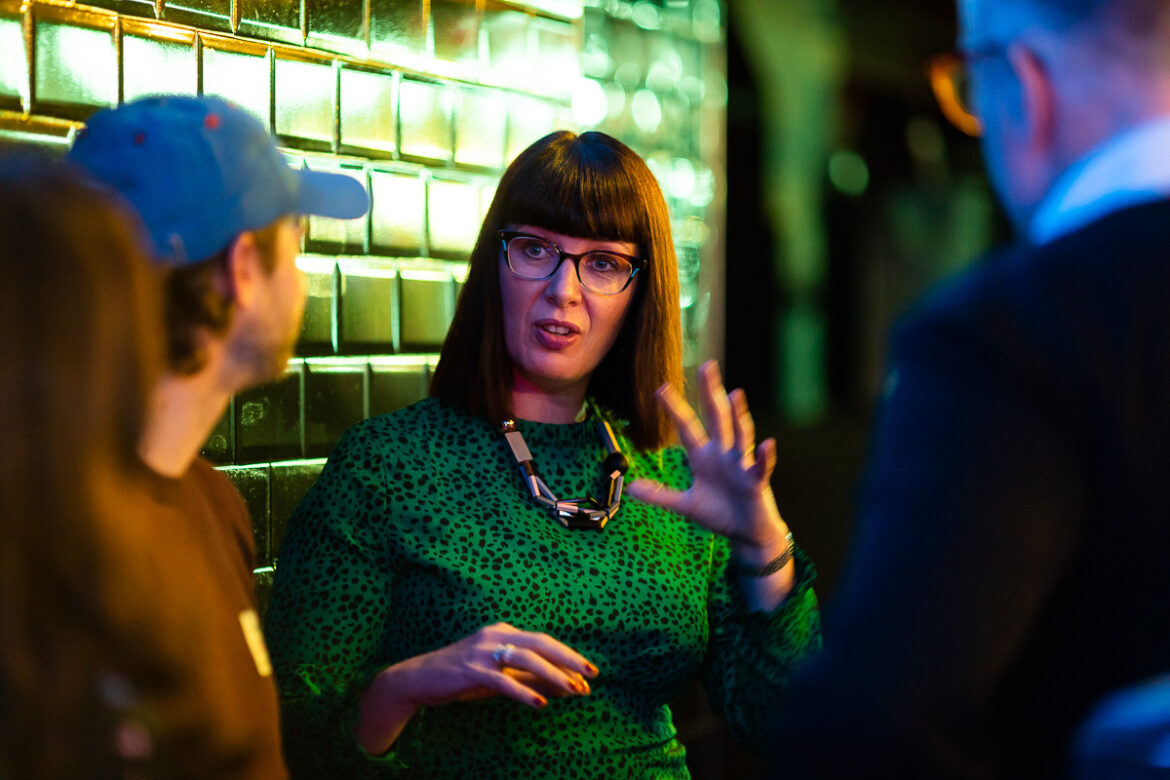
Firstly, people were split down the middle on the venue, the Ministry of Sound.
- 12 people mentioned it as a plus.
- But 12 people put it down as a negative.
We knew this venue would be a risk. We did originally have the British Library booked, but it had a fire in August so we had to find another venue. (Still, we did have some choice – so we 100% ‘own’ the decision.)
We picked Ministry of Sound for the name, the unusual venue, and the multiple breakout rooms. We basically thought it would be a fun venue for a conference.
Here’s what you told us:
- “Ministry of Sound is quite a dark place – fun to be in a club for a daytime event but also a little weird and hard to see folk. So maybe a different venue.”
- “[The venue] was novel to start with but not good in practice because of the sound problems, the lighting (hard to spend all day without daylight and then you get outside and it’s already dark!), no tables to eat at. Also really small seats? (I’m not a big person but they were small and uncomfy. Full disclosure, I was hungover so I wanted a comfier chair!)”
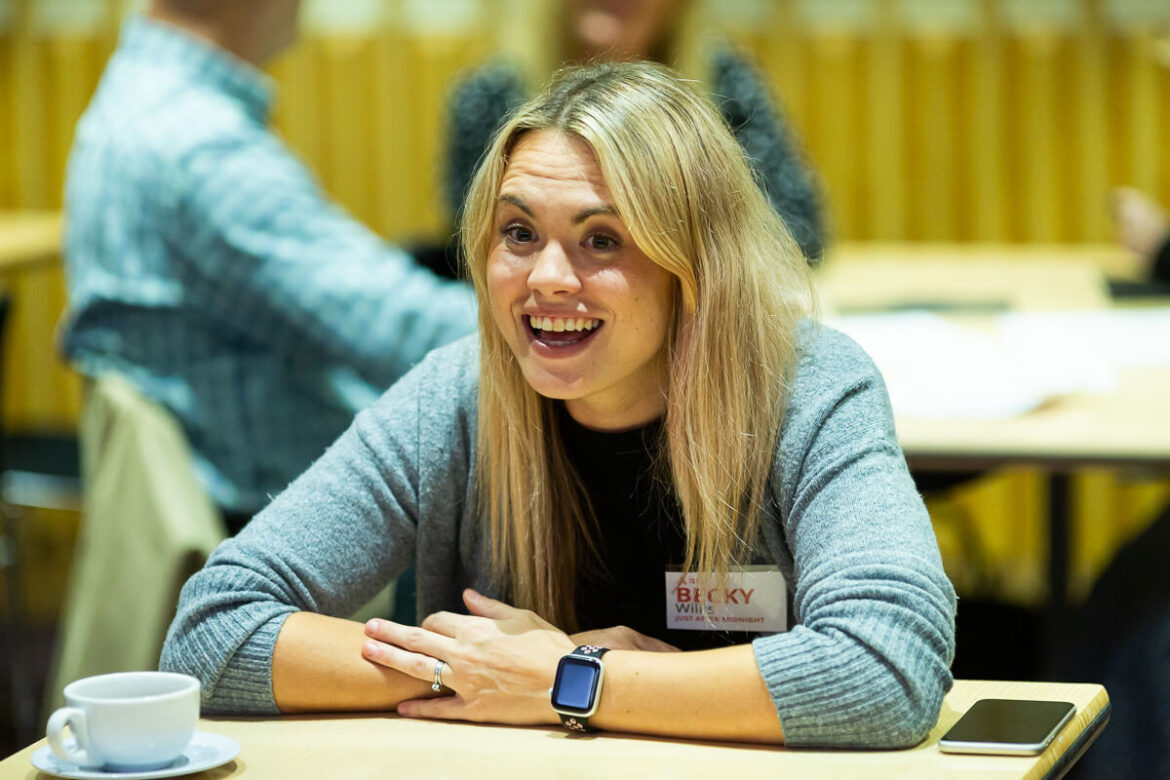
Not having tables seemed to be a real problem. Usually at our venues, you have a table to rest your laptop on. At the Ministry of Sound we didn’t have that. It made taking notes much less comfortable.
Some people did like it though!
- “Nice venue, good people, day was well structured and timekeeping was kept on top of.”
- “Great venue and a decent crowd / great refreshments.”
- “Good venue and location.”
Do you notice how people who disliked the venue had a lot of colourful things to say –while people who liked it only mentioned it in passing? I think (I’m not a researcher) that negative feedback carries more weight than positive, so perhaps the venue was not the right choice for this format of event.
Other comments:
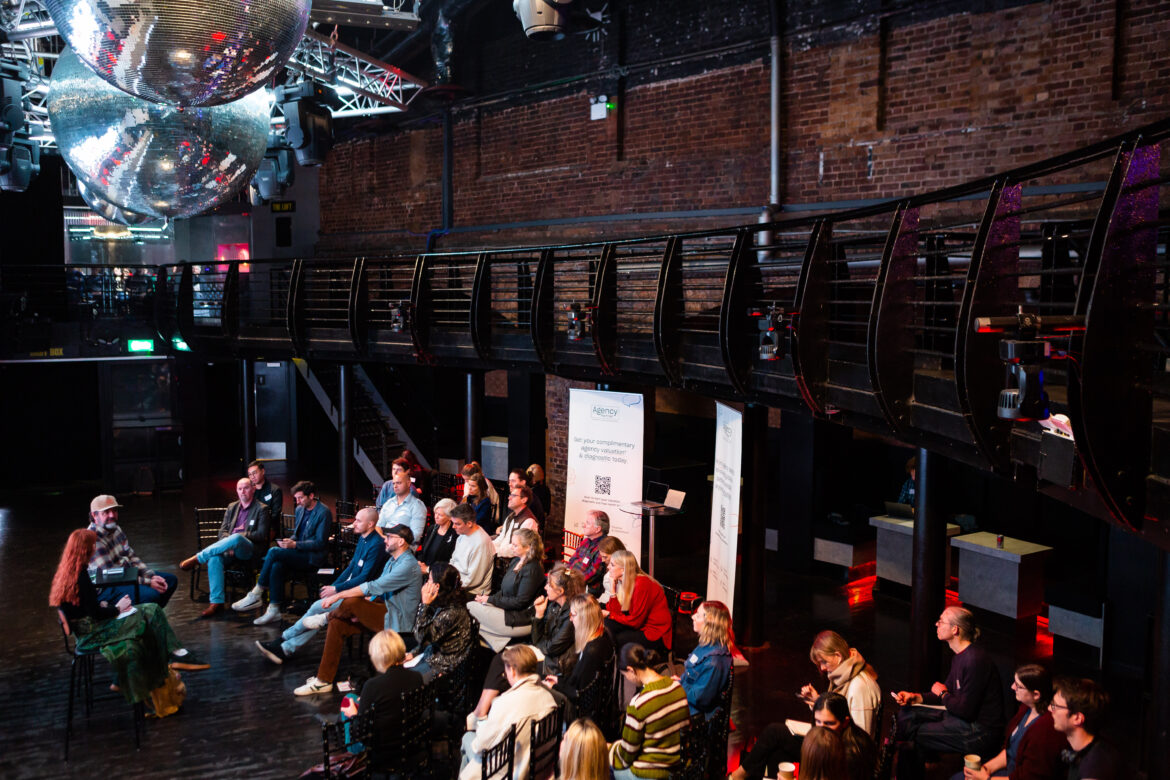
- Sound. Ironically for a nightclub, one problem we had was the sound. I’m annoyed with myself about this, because it’s the first thing I criticise at other events – and I messed this up! We thought the main downstairs room (103) wouldn’t need amplified audio, but we were wrong. You needed a mic. But when we used one, you could hear the sound in the room upstairs. We fixed this in the afternoon by moving sessions around, but it still meant that the morning sessions were hard to hear.
- Temperature. Some people said they were cold 🥶
- Food. The catering got great comments, but the vegan food wasn’t labelled. I’m really surprised we didn’t get more comments about this. We discovered this on the day when one of our dairy-dodging team members nearly ate a cheese wrap. (We told the venue – they said they’d fix it.)
☝️Action point: Overall I would say if we did use Ministry of Sound again, we’ll do an evening event there instead of a daytime event. Or we’ll do a half day. But overall we’d probably pick a different venue for this type of format in future 🤷♀️
2. People Said There Weren’t Enough Women Talking
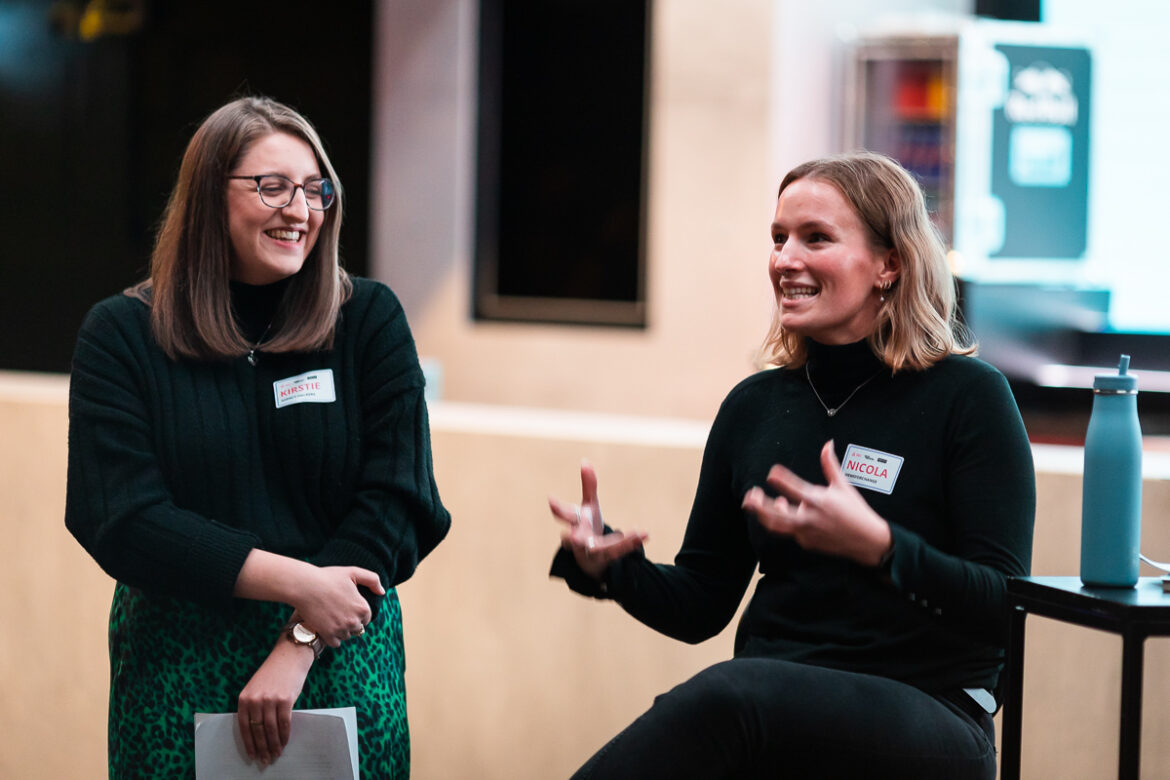
Several people commented on a “lack of gender balance” at our event.
I thought it would be interesting to dig into. Here’s a flavour of the comments we got (emphasis added):
“The bigger issue though was the complete lack of gender balance across the day. Of the 5 sessions I attended (counting the headline talks) there was ONE woman as a speaker/panellist (in the diverse hiring discussion). It’s not ok to have a woman facilitating and then a completely male panel. The first session (apart from having the ‘helpers’ called up with no notice) had ZERO women talking. I was genuinely shocked that this hadn’t been considered in the planning and it made me unlikely to join Good Agencies or attend another event.“
[Note: The two “helpers” were actually Kirstie, our Head of Content, and Sophie, our Senior Journalist, who put the event together. It might have looked like we dragged them up but it wasn’t spontaneous – they had rehearsed what they were going to say and I think they did a great job.😊]
These comments were interesting! Did we not have any women?
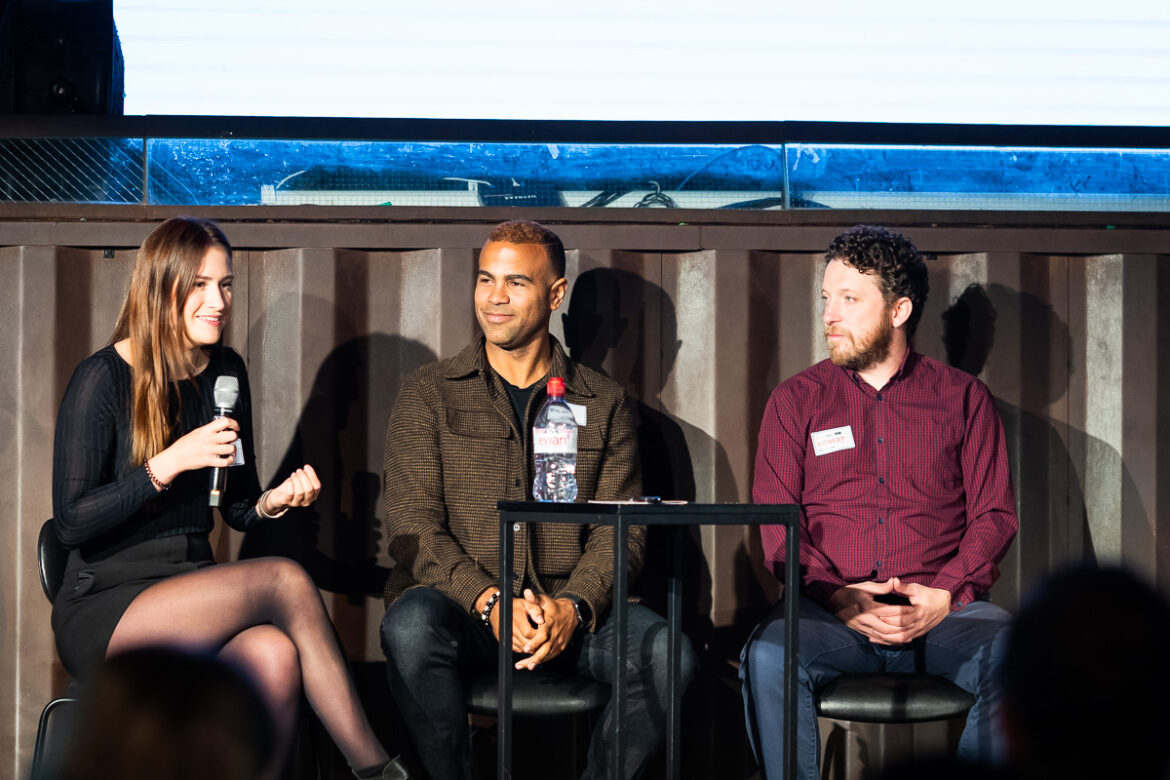
ℹ️ Across the day, four out of twelve contributors were female. That’s not 50/50, but it’s also not zero?
What happened, I guess, is that two of our sessions did indeed only have men sat on the little stools at the front of the room.
So it was possible for you to go to two sessions on the trot and not see a woman ‘in the spotlight’.
I heard that one woman left the room because she “couldn’t sit through another panel with white men.”
Oh dear! (Interestingly though, she’d have left that room and emerged straight into a session with three women and one man.)
Why did we let this happen, and what is our reaction?
1. Until now, our position has been that because we run a lot of small sessions at our events, we don’t (currently) try to make each individual one “representative”.
We might in the future! But there are arguments for and against.
Across the day a third of the people we presented as ‘authorities’ on topics were women. We would hope that people would look at the overall canvas we are painting, and not expect every pot of paint to be stirred.
In fact, in the past at our events we have just let the chips fall where they may, and people haven’t really questioned it.
For example:
- We have run events with all-male line-ups. (Transform, January 2020.)
- We have run events with all-female line-ups. (Agency Hackers Live, August 2022)
In both cases those were just the best people. Because the audience was very mixed, and because the audience is who you hear from a lot of the time, we didn’t worry too much about it.
It’s possible we’ll change that approach though. We’ll discuss it as a team, consult with our members, and we’ll post our policy up so everyone can see it.
2. We feel that people on stage are not really the “content” – the audience is.
Another aspect to this is that our events are heavily participatory. When you come to Agency Hackers, you hear from other people in the room just as much as the people who are sat on the three little stools at the front.
If you have been to our events since 2017, you will hopefully recognise this as the truth. It’s how we always run things.
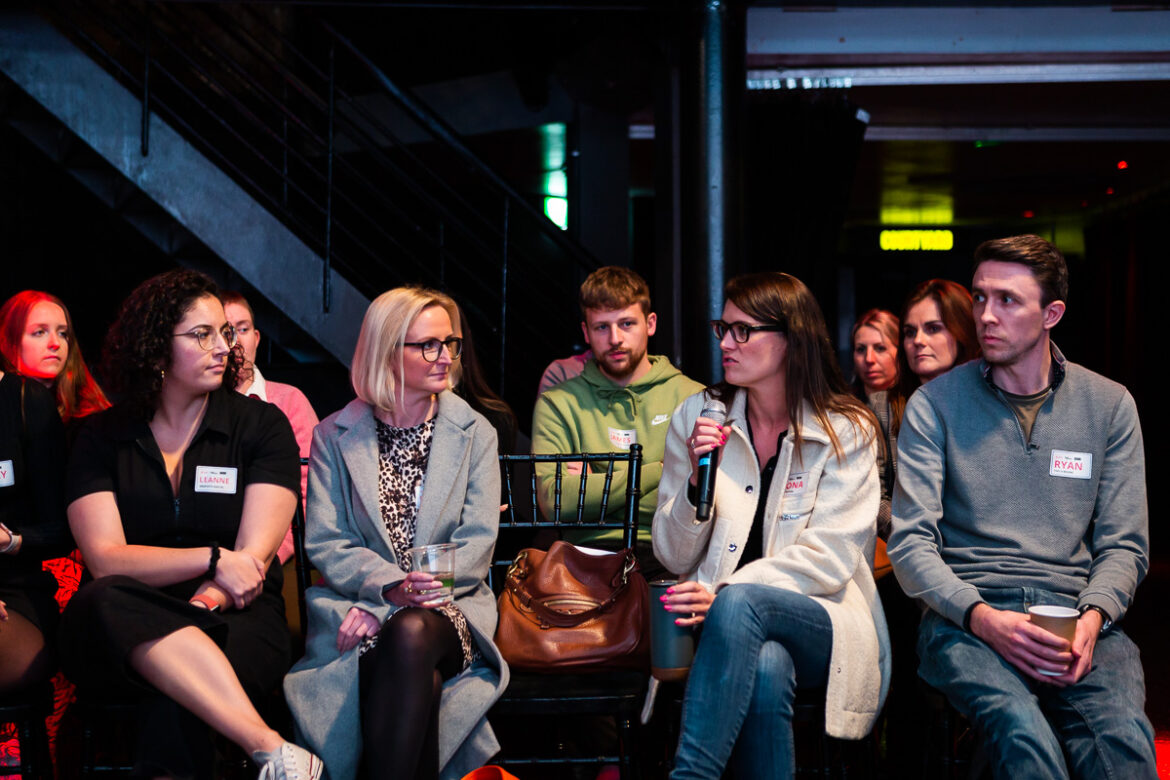
The actual value on the day is the audience. That’s why our facilitators have a little list of things that people have told us before the event, and we use those to relentlessly get input from the audience. Other events do have ‘roving mics’, but it’s rare to see quite the focus we put into this.
3. Overall there is a good mix of voices at our events.
If you look at photos of Agency Hackers events, and compare them to photos of other events that target the agency community, I hope that you will notice two things about ours:
1. There are a lot of women.
2. There are a lot of women contributing and driving the conversation.
At Good Agencies Summit we had 120 people from the ‘public’ attend. Of these, 53 people were women (senior women, too.) We are quite proud of that.
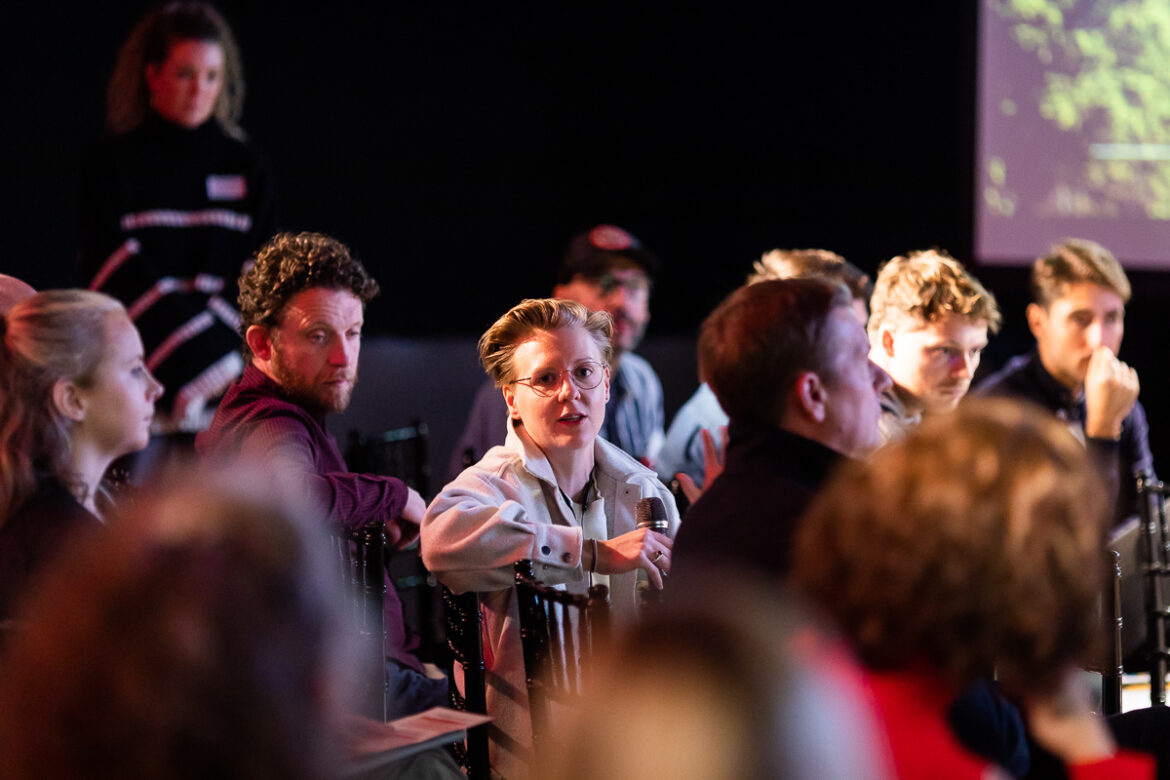
It meant that many of the voices you heard were women.
We’ve always run events that I hope are very welcoming and inclusive. (It’s a mixture of the fact that we run them in the day time, that we use discussion-based formats, and just the general tone of our community.)
ℹ️ Sidenote: if you look at our overall online event line-up, it’s quite mixed. In 2022 we will have run 168 online events for our members. 83 had no speakers or were discussion-led (but were usually facilitated by a woman) and of the remaining events, there were 57 male speakers and 38 female speakers.
☝️Action point: We’ll do some more thinking on this. I like to think we’ll still pick the best people for the situation – but if we do decide to have three men on stools we’ll definitely start the session with a good explaination of why.
3. Some Thought The Audience Was Too White
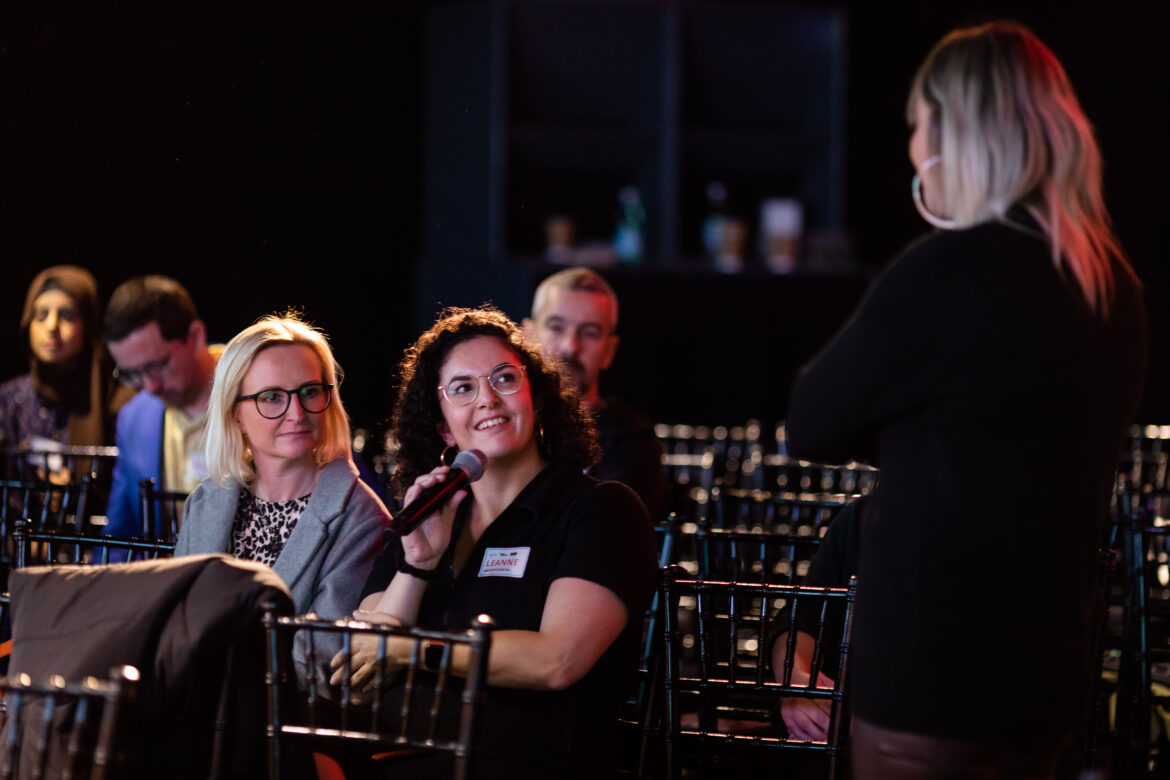
A few people said they would like the attendees to be more diverse.
We got one or two thoughtful comments on this:
“For whatever reason the attendees were in the main white, I think that an approach of gifting tickets to people from different backgrounds, or consciously inviting them along could balance things out. Soliciting introductions to POC from agencies you know and like could help you make inroads. Do you track the diversity of your attendees? If you agree that this is something that could change, then speaking about it with others and building up a plan could be good.”
It’s an interesting question! I like the fact our attendees trust us with feedback like this.
The question seems to be: when you run a public event, how responsible are you for who chooses to come?
It has been suggested a few times that we could have a scheme that ‘gifts’ tickets to people from different backgrounds. We’re definitely open to this, but we would need to think it through.
One reason we haven’t pulled the trigger on this: I’m slightly worried it looks supercilious. But I’m open to my mind being changed.
☝️Action point: We’ll look into whether we can (and should) manage the diversity of our attendees. We’ll look at how other events do this, and whether it feels right to us – or it feels a bit condescending. Probably better to have this passive (“apply for a discounted ticket”) rather than us reaching out to people, who in many cases would probably turn out to run a business bigger than ours anyway.
We also got another comment criticising the lack of diversity in our line-up.
(This was the only angry or ‘testy’ comment:)
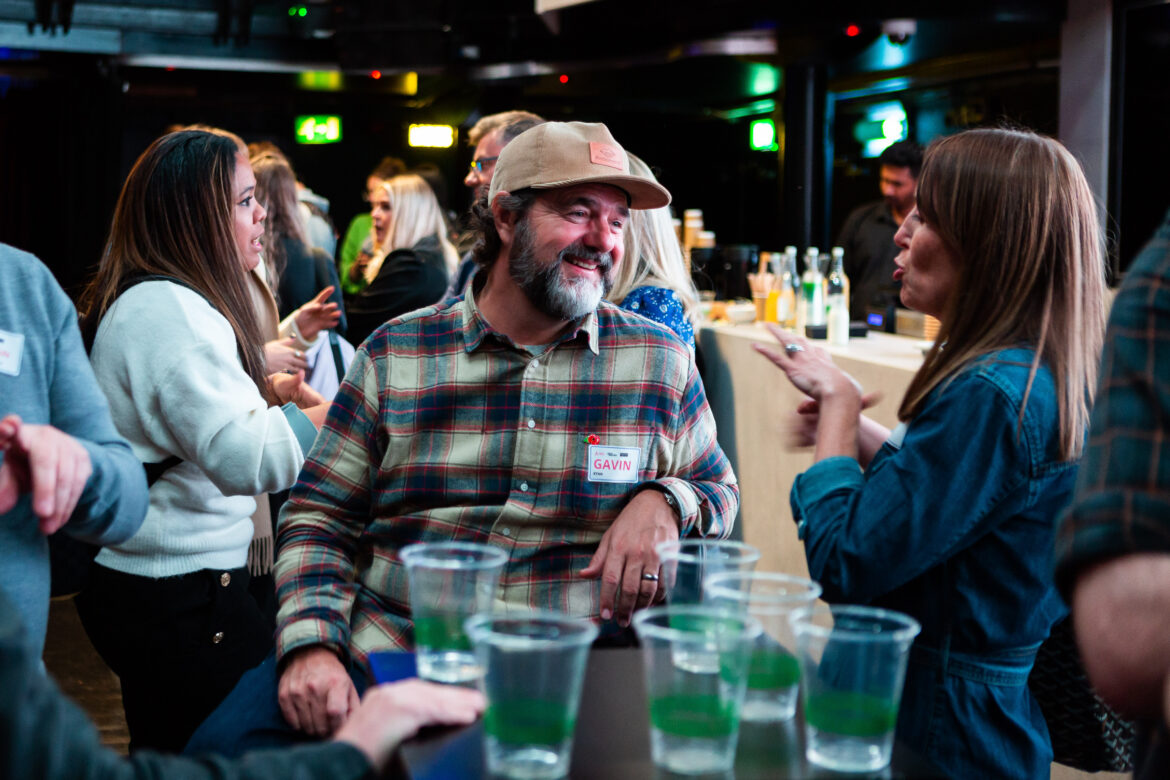
“Personally I’m far more interested in hearing from people whose thoughts, feelings, insights and opinions are informed by experiences different to my own. I’m more interested in hearing from women and BAME and LGBTQ+ folks, in order to challenge my own thinking and experiences, so that I might learn to do and be better as a result. I already know what most middle aged, middle class white guys think and honestly, most of the time I couldn’t give a shit. It’s almost always boring.“
(This was also from a white man.)
I do take the point here. But it’s a bit lazy to say that all middle aged, middle class white guys are boring. And besides that, our editorial team puts in a huge amount of work to make sure you never (or rarely) hear from anybody boring – white or not – at Agency Hackers.
Also, is it really true that people of colour or gay people have greatly different perspectives on running an agency than straight, white men? Probably on some topics! And we should rightly explore those viewpoints. But in all our discussions on EOTs, agency succession, agency positioning, purpose or sustainability, I haven’t observed much difference in what people say based on their gender, skin colour or apparent sexuality.
I suppose an interesting question is – how mixed should we be?
Out of 12 people we spotlighted at Good Agencies Summit, one person was black. Is that good or bad? My initial reaction is that it’s not good. One is not a very big number. But if 3% of us in England and Wales are black, are we actually doing well by having 8% of our line-up black?
(I’m promise I’m not tooting on a vape pen here trying to be clever – I actually don’t know the answer to this.)
☝️Action point: We could go on forever with this, but the simplest thing to do is just to ask our non-white members how they feel about this and make a decision based on that. We’ll do this over the next couple of weeks.
4. Chris Bullick’s Talk Was Also ‘Marmite’
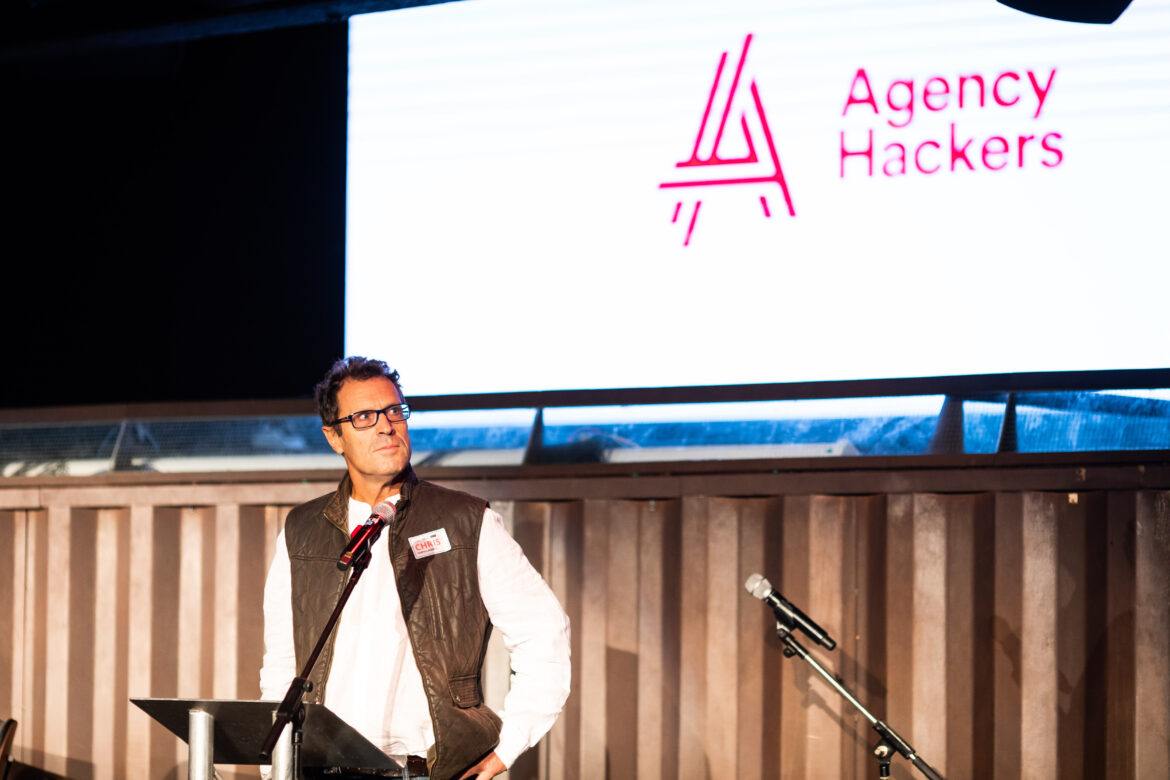
We invited Chris Bullick along to present his research into what consumers think of brands aligning themselves with ‘for good’ causes. His research found that a lot of people don’t like brands virtue-signalling, and actually they’d rather companies just pay their taxes.
He also highlighted an interesting gulf between the values of people who work in marketing, who tend to be quite ‘metropolitan’, and people who actually buy brands.
I thought the presentation was novel and interesting, and we had a lot of comments that supported this.
But it didn’t resonate with a few people. They thought it was a strange ‘opener’ – and while I agree, that was kind of the point!
In programming this one, I suppose we were keen to signal that the event wasn’t just going to be full of sappy preaching – and you were allowed to disagree and go your own way a bit.
With agency purpose, ethics and sustainability there’s a real range of views, and one of the things that sometimes stops people speaking up is that they think they have to ‘go along’ with the consensus.
5. A Lot Of People Enjoyed It And Had A Nice Time
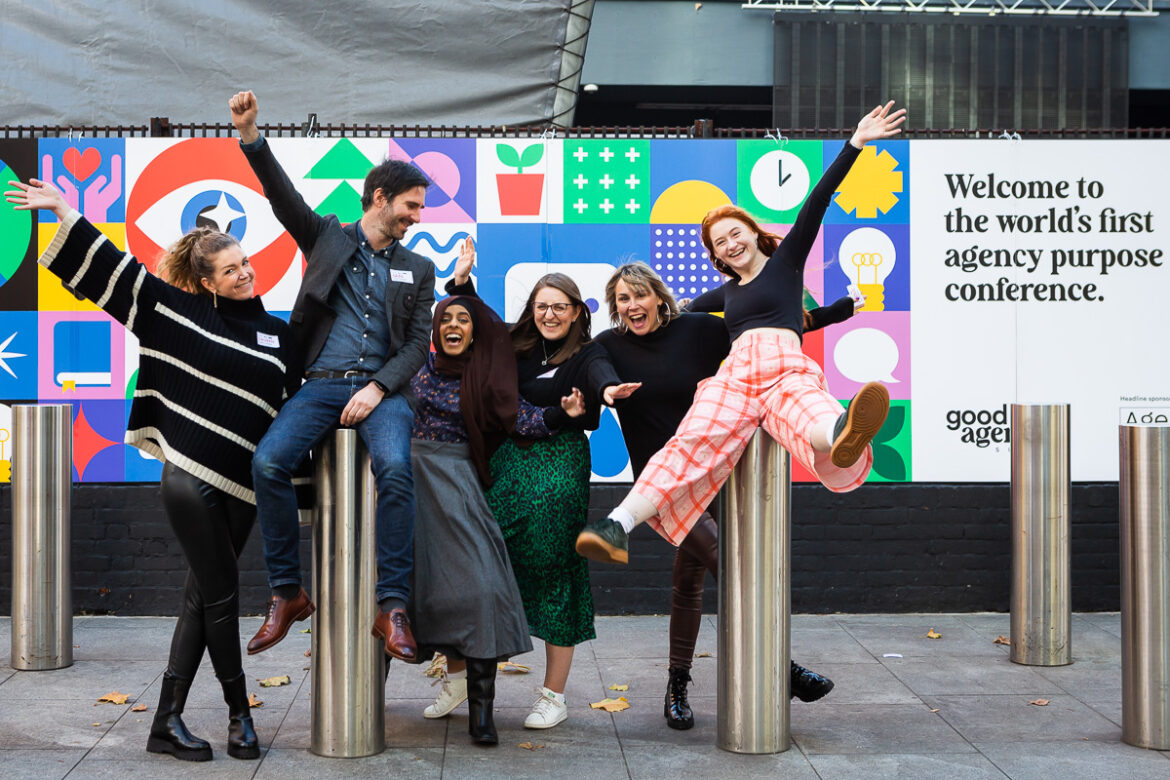
In this post I thought we’d mostly focus on the stuff we can improve, since that’s way more interesting for you to read. (You would not still be reading if this was just a list of happy feedback.)
But for the record, people were for the most part happy and enjoyed themselves!
“The open forum approach and group chats worked really well. It was great to learn from the other delegates in the room.”
“The topics discussed and also all the people. Not just those talking/facilitating but also everyone in attendance seemed welcome and open to listen and discuss topics together.”
“I liked that pro and con opinions have been represented and that a variety of topics around purpose were discussed.“
“Good vibe and mix of people with right intent, as always! Good venue, well organised and enjoyable content. In a world of bad conferences it’s one of the few that I come along to regularly.“
“The relaxed informal atmosphere – this was conjunctive for having great discussions, prompting debate, and moving the conversation about ‘good’ on in a really useful way.”
“It felt like everyone there was kind of special – like we are the force together to ‘do good’ in the world, like some sort of summit of people leading the chat, ahead of the rest! Felt grown up and cool at the same time!“
🙏 Thank you to everyone who came along, and thank you to everyone who provided feedback – it really means a lot, and we promise to act on it so we can make Agency Hackers the most interesting, useful, friendly and inclusive agency community for mature agencies. If you have any thoughts on this, I’m on [email protected] or here on LinkedIn.
